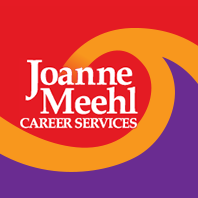Why I Can't Do Your Resume Yesterday

by: Joanne Meehl
Why I Can't Do Your Resume Yesterday, and other reasons why re-doing your resume may make no difference in your job search
Often I hear from people about re-doing their resumes. Sounds easy. And it's a key part of my business. But here's why re-doing a resume may not help your search. And how it can.
Want it yesterday. Some job seekers want a new resume done "this week" - they just want it done, even if it's done in the same way their old one was created: chronology-focused, or "skills" focused, with lists of "qualifications". Sure, these resumes can capture the facts well. But they do not tell the employer what you can do for them - today, and tomorrow. So they won't work any better than the one you already have. I don't do them this way. Keep reading for how it's done properly.
Can you just polish it up, tweak it, fix it, freshen it. I'm not even sure what those phrases mean: change some wording? make sure I have keywords? Some of this but none of that, and I'll pay accordingly? I don't do any of these because they don't work. A good resume is built in partnership with my client from the inside out, which actually takes less time than trying to fix an old one. And it comes out way better. Again: keep reading.
Self-diagnosis. "I'm not getting responses, it must be my resume". Or: "I'm not getting interviews, it must be my resume". Too often, those in search will reach a hasty self-diagnosis. Pointing at the resume may be easy, but it may be way off. It's like you telling your dentist that the old filling way in the back is causing all your other dental issues. Instead, let the dentist use his expertise to determine the real cause. You may not need a new resume at all! You may be making other errors, such as doing an ads-based search, or venting to your network instead of helping your network, or your skills are just plain out of date. Nothing we can do with the resume will change those things.
I can't tell you how I can really help until I see your existing resume. Then I ask several good questions in a brief phone conversation where we start to determine your next steps - whether they are with me or someone else or on your own.
What amazes me, and saddens me. I must interject this at this point: It amazes me that people treat their careers -- the very thing that funds their lives, and in many ways gives meaning to their lives -- with less importance than buying a car. A car may be $30,000, and you'll check out Consumer Reports, you'll ask your friends, you'll go online to see its history. But your career can earn you millions in your lifetime, but too many just "let it happen". Career success takes planning and prioritization. Calling for help when you are so miserable and desperate to leave your current job that you're thinking of quitting before finding a new one (don't!), or you're in your last few weeks of unemployment, is just not treating yourself well. You deserve better than that!
What a resume should be, and how it gets there. I develop resumes in partnership with each client, and the resume is value-focused: What value do you bring to a new employer, or even your current employer if you want to stay and move along on your career path there? Or as I like to say, how will you convince them you will "pay your own salary" if they hire you?
And the only way to develop this kind of resume is to spend time analyzing your successes from your current and earlier positions and roles. What is it that makes you successful? And how do we get that info to BE your resume? I'm really good at getting that out of each person. That's why I don't give samples, either: each resume is totally unique for each candidate. Unique wording for unique goals.
Why spend this time? It's because I don't see the resume as a "document". instead, I see it as a marketing tool, one that IS you on paper. Getting YOU on paper is actually fun?to me, and what gives me tremendous satisfaction because I know it will work for my client. And this process is what gets you results - real results in the form of interviews for jobs you want, jobs that will be the next lucrative step in your career. Not just "a job".
A resume cannot work all by itself. Not today. For years I've not thought it ethical to "do" a resume by itself because today, it's a good resume AND LinkedIn profile that are literally married, working on your behalf in this thing called job search. The resume cannot be a loner any more. This is my biggest reason for turning down people who want "just" a resume yesterday or "just" a fix. You simply must do it all in order to do it right.
I also add in one more vital tool: I help clients create their Applicant Tracking System (ATS) version of their resume, which most people use way more than their Word version during job search. All three work together to solidify your identity as a candidate. This is what you need today.
Sheltered? Often I hear from people who have not looked for a new role since before the Great Economic Collapse of 2008 that in some ways, continues through to today in employers' extreme pickiness. Many starting a search have been "sheltered" in a role that has kept them from seeing how things are now: "I'll just update my resume, call a recruiter or two, and presto, I'll get my new job."
Today, it does not work that way. Words like keywords, algorithms, branding, and marketing will quickly become part of your lexicon. These are critical to your selling yourself to your next employer, even for job hunters in the executive suite. Too many until-now-sheltered people end up with long and frustrating searches because they have no idea that the ways of marketing yourself today are far different than five, eight, 10, or 20 years ago.
Final words: So I do lose referrals, which isn't fun. I do understand the appeal of having someone, anyone get you a new resume: it feels good to get it done "by somebody". Check it off. Some would say that "Long-term thinking is a luxury when I have a mortgage to pay." But usually it's a history of living from career emergency to career emergency that gets a job seeker stuck in this pattern, sad to say. Smart job hunters not only think ahead, but are also open to change even if they're not crazy about going through it.
From what I see as I continually talk with recruiters and hiring managers, is it's critical to know yourself and what you bring, AND how to articulate it, in order to get noticed by them and the hiring manager. That's my gold standard in how I help people do their resume, sell themselves, market themselves, brand themselves, advance their careers.
For this simple reason: It works.

Comments
Recent Posts
Blog Archive